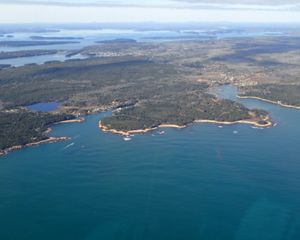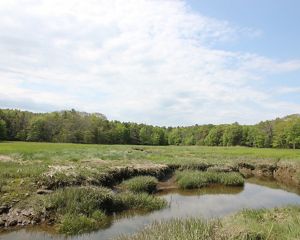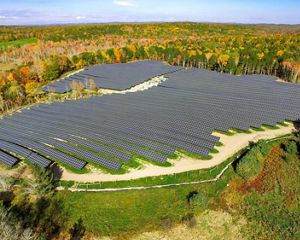Maine Climate Media Resource Guide
Reporting on climate change in Maine? Insights from TNC's conservation and climate experts will help you tell a full, compelling story.
Media Contact:
Jeremy Cluchey
Director of Public Affairs
Phone: 207-607-4843
Email: jeremy.cluchey@tnc.org
The effects of climate change are evident here in Maine and around the world. More frequent and extreme weather events, a warming Gulf of Maine and changes in the length and intensity of the seasons are affecting Maine people, our livelihoods and our iconic natural places and habitats.
For decades, The Nature Conservancy in Maine has been a leader in finding innovative, science-based solutions to our most challenging environmental problems. Today, our experts are exploring solutions to match the urgency of the climate crisis. We're looking at how we can best use forests as a natural climate solution; we're working with coastal communities to prepare for sea level rise; we're finding ways to provide broader access to renewable energy; and we're helping the fishing community adapt to a warming Gulf. Just to name a few.
This work is only possible with the skills and expertise of The Nature Conservancy's team of scientists and conservation leaders. They are an excellent resource, ready to share their insights with journalists looking to tell stories about the climate crisis that are in-depth, engaging and useful.
To get in touch with a TNC expert for a story, please contact Jeremy Cluchey at jeremy.cluchey@tnc.org or 207-607-4843.
Sea-Level Rise and Coastal Risk
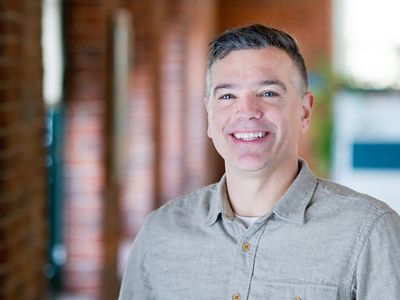
Jeremy Bell, Climate Adaptation Program Director
Jeremy works across the state and beyond to protect people and nature from the effects of climate change. He works on issues primarily related to water—whether supporting on the ground project, improving policy or finding innovative funding streams to meet the scale of the problem. For example, promoting right-sized road stream crossings that can survive increasingly intense rain events in rural communities, or providing coastal communities with the tools to build ‘living shorelines,’ a more natural way of slowing the damage of erosion to marshes and bluffs.
Prior to coming to TNC, he was the Wetlands Program Manager for the Massachusetts Division of Ecological Restoration and a project manager there for nearly 10 years. Jeremy has a Master's in Environmental Studies with an emphasis in wetlands ecology and management.
Media:
How Sea Level Rise Will Change Maine's Coast—Maine Calling, Maine Public
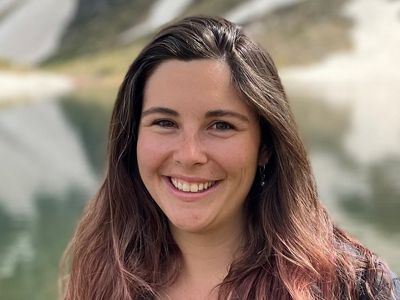
Helena Tatgenhorst, Coastal Nature-Based Solutions Strategist
Helena’s work focuses on developing a nearshore conservation strategy for the coast of Maine using nature-based solutions. This strategy identifies a prioritized list of high-value near-shore restoration opportunities, which provide the co-benefits of increasing biodiversity, providing blue carbon storage and protecting Maine’s coastal communities from the effects of climate change. Helena works with state, federal, Tribal, municipal and NGO partners to ensure that this state-wide strategy will provide benefits to communities.
Inland Flood Risk

Hadley Couraud, Aquatic Restoration Manager
Hadley works closely with communities on projects that restore fish passage while creating road-stream crossings that can better withstand more frequent and intense storm events. By integrating equity and justice as foundational elements, Hadley focuses on reconnecting and restoring critical freshwater habitats across the state. She studied Biology and Peace Studies at Goucher College and spent several years researching for and managing a hyena behavior lab out of Michigan State University. Prior to TNC, Hadley learned the critical role of local conservation working for a regional water fund, Sebago Clean Waters, and land trusts in land conservation, planning and mapping.
Media:
With Heavy Downpours Becoming More Frequent, Wider Culverts Will Be Key—Maine Calling, Maine Public
Maine Fisheries and the Warming Gulf
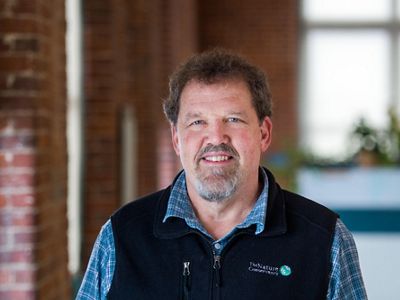
Geoff Smith, Marine Program Director
Geoff has nearly 20 years of professional experience in natural resource management, with an emphasis on watershed management and fisheries. Geoff joined The Nature Conservancy staff in February 2006 and is also Staff Lead for TNC’s Gulf of Maine Whole System Conservation Team. He has served on the Maine Coast Community Groundfish Sector Board of Directors for ten years and was recently appointed to the State of Maine’s Obligatory Seat on the New England Fishery Management Council.
Media:

Jocelyn Runnebaum, Marine Scientist
Jocelyn’s work focuses on helping to advance TNC’s marine conservation initiatives in the Gulf of Maine on climate-ready fisheries, aquaculture and offshore wind. Jocelyn works collaboratively with fishermen, scientists and resource managers to improve the conservation status of key marine species and to improve the overall ecological health of the Gulf of Maine. This work includes partnerships to implement on-the-water projects with fishermen and working to influence ocean and coastal policies at the state, regional, and national level. Jocelyn is also a member of the Maine Department of Marine Resources Advisory Council. Before joining TNC, Jocelyn worked for the Alaska Department of Fish and Game as a fisheries biologist providing technical support and advice on federal fisheries management. Jocelyn has a B.S. in biology from Stephen F. Austin State University and a Ph.D. in marine biology from the University of Maine.
Forests and Carbon Storage
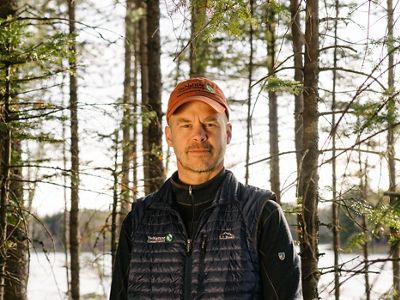
Mark Berry, Forest Program Director
Mark is the strategic leader for TNC’s Maine forest conservation initiatives, overseeing strategy development and forest conservation. He helps TNC develop collaborative approaches to integrate a sustainable forest economy, forest-based climate change solutions and biodiversity conservation in Maine, and he works closely with TNC’s regional and global teams focused on forests and natural climate solutions. Mark holds an MS in ecology and evolutionary biology from the University of Colorado and a bachelor’s degree in environmental and evolutionary biology from Dartmouth College. His prior experience includes leadership of Schoodic Institute at Acadia National Park and Downeast Lakes Land Trust. Mark currently serves on the Maine Climate Council's Natural and Working Lands Working Group.
Media:
Northern Maine carbon offset project to help combat climate change—MaineBiz
Solar Energy Siting

Daniel Coker, Senior Spatial Scientist
Dan works with all departments at the Maine Chapter to create and implement tools and analyses that both help TNC decide where and how to work and puts critical information in the hands of communities as they grapple with the effects of our changing climate. In addition, he serves as a GIS liaison with state and regional partner organizations. One example of Dan’s current work is the application of the Resilient Connected Network concept to the siting of solar development in Maine. He holds a master of science degree in wildlife biology and a bachelor of arts degree in biology. Learn more about Dan's climate work.
Climate Science
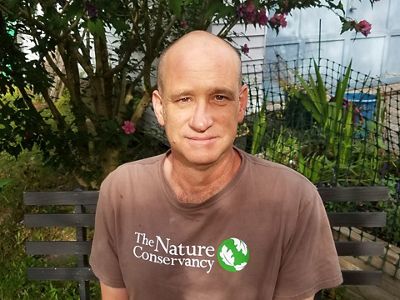
Nicholas Wolff, Climate Change Scientist
Nick is the climate change scientist for TNC’s Global Science program. He is responsible for ensuring that climate change implications are incorporated into TNC’s decision making and strategy development. To offer informed advice, Nick engages in cutting-edge research on climate change impacts on a variety of ecosystems, including savannahs, rainforests and coral reefs, using the latest climate models and data. Nick has conducted research worldwide, including on the feeding behavior of whales in the Gulf of Maine, fishing impacts in the Virgin Islands and coral reef conservation in the Maldives and Indonesia.
Media:
Great Barrier Reef not bouncing back as before, but there is hope—Science Daily
Planning for the Future in a Warming Ocean—Cool Green Science
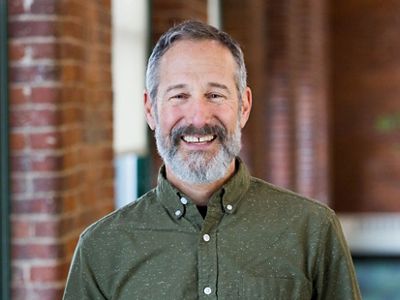
Joshua Royte, Senior Conservation Scientist
Joshua has led TNC’s work to restore Maine river connectivity, opening some of the region's best habitat to native fish and other wildlife. His expertise also helps guide and promote river restoration globally as an advisor to TNC Europe’s Freshwater program and the European Union AMBER and MERLIN projects. He co-authored the book From Sea to Source 2.0, describing why fish migrate, the impact of stream barriers, examples and techniques on how to fix them and how to build greater awareness in society. A large portion of Joshua’s time is dedicated to helping TNC’s Europe Program to develop their efforts to protect and restore rivers, with an emphasis on the western Balkans in southeast Europe. Joshua has a bachelor of arts degree from Bard College and a master's from Yale School of Forestry and Environmental Studies.
Media:
Climate Policy

Kaitlyn Nuzzo, Director of Government Relations
Kaitlyn is responsible for leading the Maine Chapter’s federal policy strategies and covering a range of state policy issues to advance land and water protection and sustainable fisheries. Prior to joining TNC, Kaitlyn served as the Maine policy manager for the Appalachian Mountain Club. In that capacity, she gained significant experience working in the Maine Legislature and coordinating state-based advocacy for the federal Land and Water Conservation Fund. Originally from Aroostook Country, Kaitlyn graduated from Colby College with honors in environmental policy. While at Colby, she interned for US Senator Susan Collins.
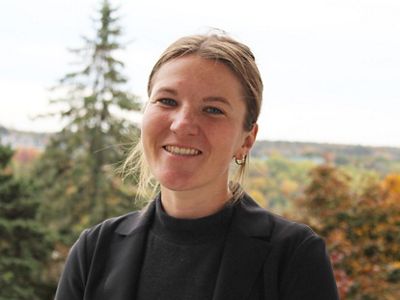
Karen Blakelock, Climate and Energy Policy Advisor
As part of the Government Relations team, Karen helps bring TNC’s science-based approach to policy solutions. Prior to joining TNC, Karen worked as a policy analyst with the U.S. Climate Alliance at the United Nations Foundation in Washington, D.C. She also spent many years working seasonally at the Chewonki Foundation in Wiscasset, teaching outdoor education and leading kayaking, canoeing and hiking expeditions across the state. From these experiences, she has a great appreciation for the woods, waters and communities across Maine. She has a master’s degree in environmental law and policy from Vermont Law and Graduate School and a bachelor’s degree in political science from St. Lawrence University.
Climate Strategy and Conservation Leadership

Kate Dempsey, Maine State Director
Since taking on the state director role in 2016, Kate has overseen significant capacity expansion at TNC in Maine in order to take on today's conservation challenges, including a deepened focus on climate change. She has been selected to serve on Governor Mills' Maine Climate Council, and has been a leader of TNC's North America 50-State Climate Strategy. Kate was also involved in the Maine Climate Action Plan 2004, Maine's first statewide climate planning effort. Previously, Kate was TNC's external affairs director, managing our policy, partnerships and marketing efforts. She received an undergraduate degree in government and sociology from Bowdoin College and an M.A. from Tufts University's Department of Urban and Environmental Policy. Kate served in the offices of U.S. Representative Marty Meehan and U.S. Rep. Tom Allen before joining TNC in 2003.
Media:
'Conversation, Not Conquest'—A Guide On How To Talk Climate Change—Maine Public
Maine Voices: Maine can lead on pragmatic climate policy—Portland Press herald
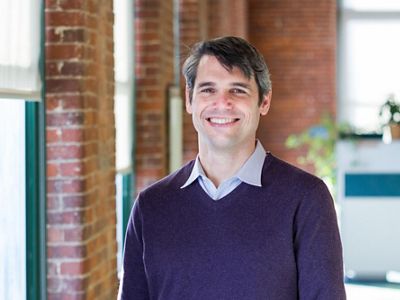
Alex Mas, Associate State Director/Director of Conservation
Alex is responsible for overseeing all conservation programs for the Maine chapter, including how those programs connect to TNC's broader focus on addressing climate change. Alex has worked for TNC for sixteen years, the first eight of which were in California, where he served as the executive director of the Northern Sierra Partnership, as director of the Sierra Nevada and Klamath Mountains regions, and as a local project director and conservation planner. Before joining TNC, Alex worked as a researcher and practitioner with a range of community-based and collaborative resource management projects in the U.S. and abroad. Alex received an M.S. in resource ecology & management from the University of Michigan and undergraduate degrees in environmental studies and English from Tufts University.

